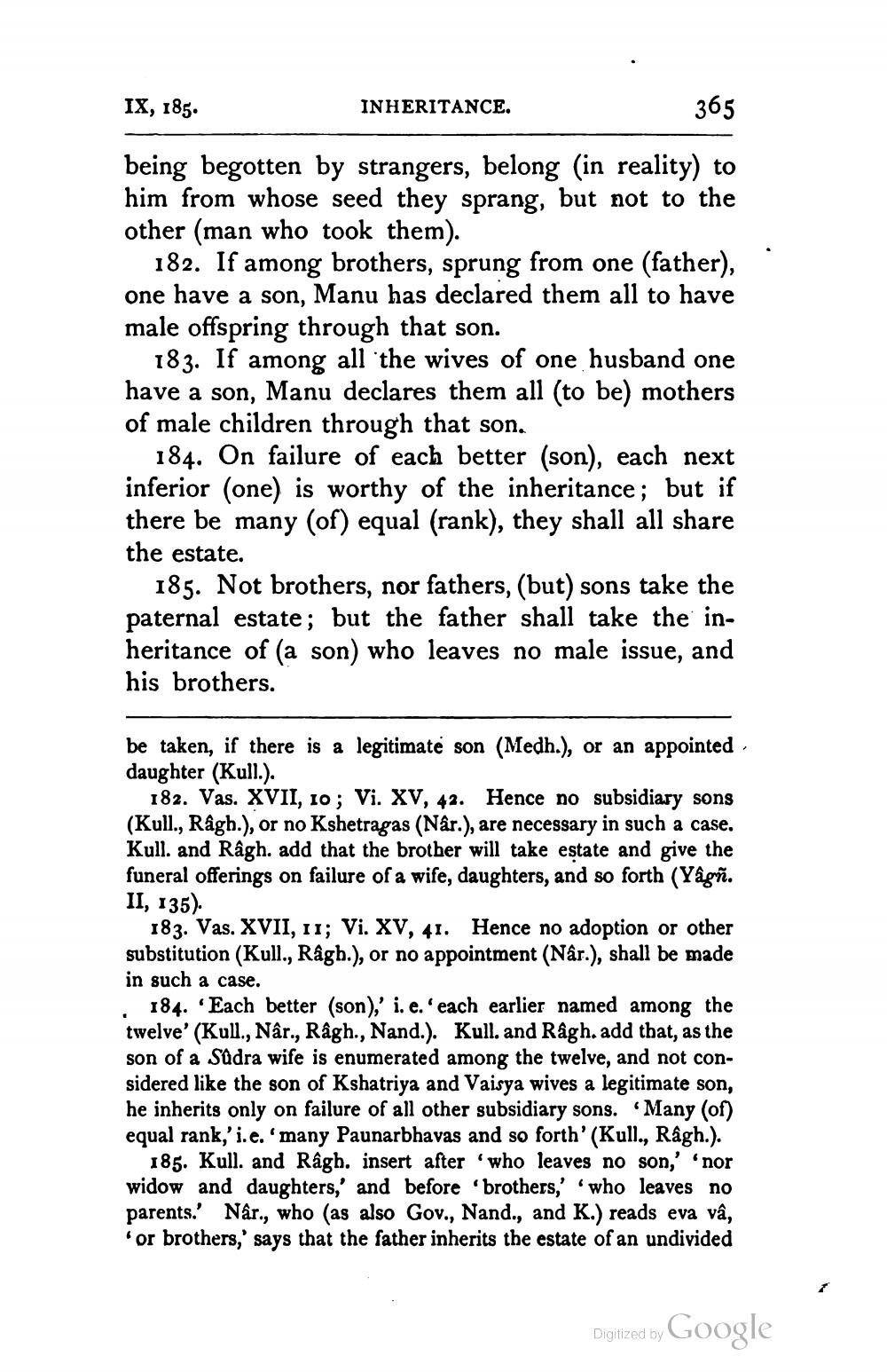________________
365
IX, 185.
being begotten by strangers, belong (in reality) to him from whose seed they sprang, but not to the other (man who took them).
182. If among brothers, sprung from one (father), one have a son, Manu has declared them all to have male offspring through that son.
183. If among all the wives of one husband one have a son, Manu declares them all (to be) mothers of male children through that son.
INHERITANCE.
184. On failure of each better (son), each next inferior (one) is worthy of the inheritance; but if there be many (of) equal (rank), they shall all share the estate.
185. Not brothers, nor fathers, (but) sons take the paternal estate; but the father shall take the inheritance of (a son) who leaves no male issue, and his brothers.
be taken, if there is a legitimate son (Medh.), or an appointed daughter (Kull.).
182. Vas. XVII, 10; Vi. XV, 42. Hence no subsidiary sons (Kull., Râgh.), or no Kshetragas (Nâr.), are necessary in such a case. Kull. and Râgh. add that the brother will take estate and give the funeral offerings on failure of a wife, daughters, and so forth (Yâgñ. II, 135).
183. Vas. XVII, 11; Vi. XV, 41. Hence no adoption or other substitution (Kull., Râgh.), or no appointment (Nâr.), shall be made in such a case.
184. Each better (son),' i. e. ' each earlier named among the twelve' (Kull., Nâr., Râgh., Nand.). Kull. and Râgh. add that, as the son of a Sûdra wife is enumerated among the twelve, and not considered like the son of Kshatriya and Vaisya wives a legitimate son, he inherits only on failure of all other subsidiary sons. Many (of) equal rank,' i. e. 'many Paunarbhavas and so forth' (Kull., Râgh.).
185. Kull. and Râgh. insert after 'who leaves no son,' 'nor widow and daughters,' and before 'brothers,' 'who leaves no parents.' Nâr., who (as also Gov., Nand., and K.) reads eva vâ, 'or brothers,' says that the father inherits the estate of an undivided
Digitized by
Google




